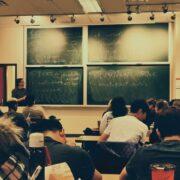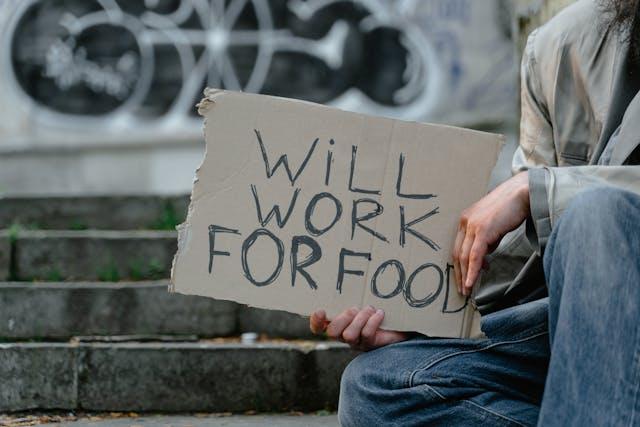by Sunita Sohrabji, Ethnic Media Services
THE California College Corps program offers students the chance to find purpose and connection through service at a moment of rising anxiety and isolation across campuses.
The California For All College Corps program, launched last year by Gov. Gavin Newsom, is a unique initiative which offers up to $10,000 in college scholarships to students, in exchange for volunteering for 450 hours of community service during the academic year.
Several UC campuses as well as CSUs and community colleges are participating in the program: the list of participating colleges can be found here.
California Volunteers, the agency which administers the College Corps program is hoping to recruit 3,000 participants for the 2023-2024 academic year. Priority applications were due March 15, but deadlines vary at participating campuses.
The College Corps program is currently available to full-time enrolled undergraduate students. Eligible students must meet at least one of the following criteria:
- Qualify for a Federal Pell Grant
- Qualify for a State Cal Grant
- Qualify for a Middle Class Scholarship
Need to work part time and/or borrow student loans
In its first year, the California College Corps recruited a diverse group of participants, with 80% students of color and 500 so-called DREAMERs. College Corps fellows are placed in community-based organizations working in K-12 education, climate action, and food insecurity.
Confronting multiple crises
At a March 13 news briefing, jointly organized by Ethnic Media Services and California Black Media, California Chief Service Officer Josh Fryday noted Governor Newsom is aware of the multiple crises confronting the state.
“We’re facing a student debt crisis. We’re facing crises of enormous existential issues, a climate crisis, a food insecurity crisis, education disparity crises. And we’re also, at the same time, facing a crisis of the spirit,” said Fryday.
“College Corps helps us address all of these multiple crises at once,” he added. “These young people are doing really meaningful work for all of our communities. They’re doing work around climate change. They’re doing really critical work around food insecurity, helping get food to those who need it the most, and dealing with the education disparities that we’re seeing, especially among our low income youth coming out of COVID.”
College Corps volunteer Emilio Ruiz spoke about how the program had transformed his life. The 24-year-old, who is studying at CSU Long Beach with the intent of pursuing a career in education, comes from a troubled childhood. “School was always my safe space. It was always the place where I could go to steer clear of my dilemmas and adversities, and where I could lean on adults to get support and praise.”
Through the College Corps at the Beach internship program, Ruiz was placed with Ground Education, a nonprofit organization that teaches outdoor and garden-based learning.
Finding purpose through service
“Ground Education is a shining example of the goal of creating safe spaces in schools for children. By being able to work with this incredible organization, I feel like I’ve gone from being a student who once desperately needed a safe space to learn, to being the trusted adult who can provide students with an environment where they have a deep sense of belonging and know that they are seen, heard, supported and valued,” said Ruiz.
Dr. Allison Briscoe-Smith, Senior Fellow of the Greater Good Science Center and the co-instructor of the GGSC’s Bridging Differences online course, noted that anxiety and depression have been spiking on college campuses.
“Many clinicians like myself are hearing from students that hopelessness, purposelessness, and isolation are contributing to a sense of not feeling like they belong, and not knowing where they can get help,” said Briscoe-Smith.
“So we are hopeful that the College Corps program provides an antidote: finding purpose through service. Being able to see yourself and the folks that you serve is an amazing opportunity for transformation and connection,” she said.
Project Optimism
Ishmael Pruitt, co-founder and CEO of Project Optimism, said his epiphany came about as he mentored students at Hiram Johnson High School, the lowest performing high school in Sacramento County. “Working with the students there boosted my confidence. I started to find my identity and trust that I had something to contribute to the world beyond just enrolling in college.”
“I wanted to create this opportunity for other people. So I created a student organization for local high schools and middle schools called Project Optimism. And they had that same transformative experience,” said Pruitt, noting that students who volunteered with the Project Optimism initiative had better grades, focus, and engagement.
Project Optimism serves youth from Sacramento County all the way to Los Angeles County, about 340 students for the full year. Students are aligned with mentorship cohorts, and an intentional guiding curriculum that supports the whole student.
Dr. Beth Manke, Professor of Human Development and Program Director for the CSU Long Beach College Corps Program, noted that her campus enrolled 50 undergraduate students in the College Corps program, including a number of undocumented students.
“These are experiences that have proven to be quite transformative for our students. Over 85% of our student fellows reported that their internships have helped them in positive ways. They’re talking about how they’re able to apply course knowledge to real world experiences. They’re acquiring job or work related skills, developing skills to work effectively as part of a team,” said Manke.
“Our students are also telling us about the fact that they’re really getting a chance to understand their role in their own community. Many students today feel they don’t belong on their college campuses. Our students feel a sense of purpose and belonging,” she said.






